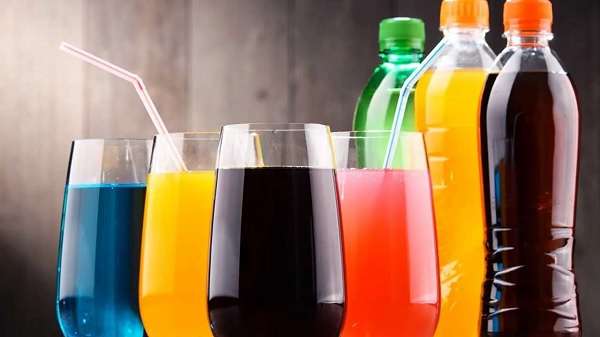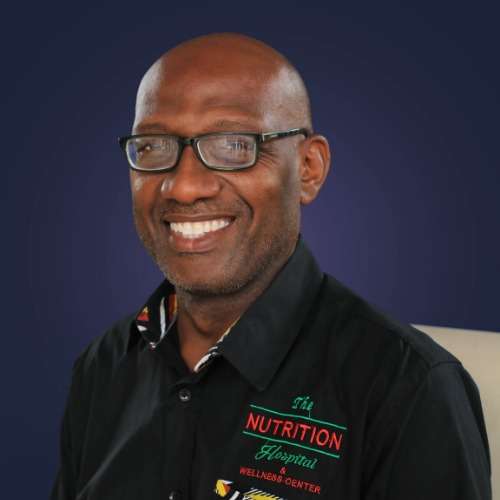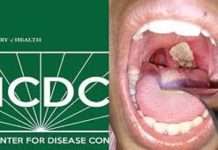
One of the greatest banes to actualising a robust national food policy in Nigeria has been the failure of sugar-sweetened beverages (SSBs) manufacturers to entrench sound consumer education initiatives, even as they smile to the bank with multi-billion naira returns on investment at the expense of their consumers’ health. Most of these consumers, including vulnerable populations such as children, are sadly carried away by the fascinating storylines of the advertising campaigns of SSB. As a result, they are subconsciously influenced to make buying decisions that become detrimental to their well-being in the long run.
Nigeria ranks 4th globally in the highest SSBs consumers. The country sells an estimated 38.6 million liters of sugar-sweetened beverages annually in a market that accounts for a whooping US$16.87bn in 2023, with a projected annual growth rate of 16.63 percent. What this portends is that non-communicable diseases like diabetes, obesity and tooth decay, which have been linked to the consumption of SSBs, could witness an upward swing in the coming years if the government and other stakeholders, especially the SSBs manufacturers, do not intensify consumer education programmes to sensitise the public on the dangers embedded in these bottled disasters. In addition, SSB manufacturers must ethically draw the line between profit-making and jeopardising consumers’ health.
According to a document, National Multi-Sectoral Action Plan for the Prevention and Control of Non-Communicable Diseases (2019 – 2025), obtained from the Federal Ministry of Health, there is very little evidence on the burden of NCDs and its trend in Nigeria. However, a recent systematic review of NCDs-related evaluation carried out across the federation on seven NCDs – cardiovascular diseases, diabetes mellitus, chronic respiratory diseases, cancers, sickle cell disease, mental neurological and substance use disorders and road traffic injuries, indicates a rise in trend, prevalence and incidence. The document also clearly identified the consumption of refined sugars in foods and drinks as one of the risk factors for the escalation of NCDs in Nigeria.
The document on the statistical overview of the SSB burden in Nigeria reads: “According to the WHO NCDs Country profile 2016 report, NCDs were estimated to cause approximately 617,300 deaths, representing 29 per cent of total deaths in Nigeria. Out of these, injuries accounted for 8 per cent, followed by cardiovascular diseases with 11 per cent. Premature mortality due to NCDs, which is defined as the probability of dying between ages 30 and 70 years from the main NCDs is 22 per cent.”
Though SSBs manufacturers, like Coca-Cola, have always claimed that there is no empirical evidence to show that sugar-sweetened beverages predispose consumers to non-communicable diseases, experts in the medical and nutrition professions have always warned that continuous consumption of soft drinks or ultra-processed foods can lead to harmful outcomes for the human system. It was to this end that the popular sugar wars ensued in the United States, with the advocacy group, The Praxis Project filing a lawsuit against Coca-Cola for using deceptive advertising to mislead consumers about the health impact of their products. Similar cases have also been recorded in other parts of the world with overwhelming scientific consensus about the harmful effects of sugar on human health, even though SSB manufacturers have continued to deny it.
When contacted to explain the efforts his company was making in terms of educating its teeming consumers on the reality of SSBs’ link with non-communicable diseases like diabetes, Mr Ekuma Eze, director of Public Affairs and Sustainability at Coca-Cola Hellenic Bottling Company, promised to liaise with the marketing department and get back to this writer. His response is still being awaited. It is the same situation with letters sent to the marketing heads of CHI Ltd., makers of Chivita, Rite Foods, makers of Bigi Cola, and Viju Industries, makers of Viju Milk. None of them has responded to queries sent to them. Is this silence a sign of complicity in the shortchanging and deception of consumers? Time will surely tell. This collective silence makes a mockery of the Freedom of Information Act of 2011 which empowers individuals, groups and bodies to access information from public and private institutions offering services to the Nigerian public. More so, it is imperative for these SSB manufacturers to understand that the information being requested is a tool that would enable better outcomes for their products and services in terms of quality control and assurance and not a strategy for faultfinding. Until such manufacturers cooperate and make the needed information available to the public, bridging the gap of consumer awareness and education would remain a mirage.
However, Dr Patrick Ijewere, CEO of The Nutrition Hospital, Lagos, agrees that there is an ongoing imbalance between consumer education and deception by the manufacturers of SSBs, for the sake of maximising profit. Although, according to the nutrition expert, the manufacturers of SSBs are always deploying fantastic advertising to lure consumers with illusory realities such as Coca-Cola’s “Tomorrow’s People” ad of the mid-eighties and Nestle’s Milo “Food Drink of Future Champions” of the nineties, there has not been commensurate efforts in terms of educating consumers on the harmful effects of sugar consumption on health. For him, there are no future champions anywhere near Milo, only obese children with decaying dentition and failing eyesight. He, therefore, advocated for educational labelling on such products as it is done in the tobacco industry worldwide.

While harping on the importance of consumer awareness and education in Nigeria, the President of Consumer Awareness Organisation, an Enugu-based NGO and former Board Member International Association of Consumer Law, Professor Felicia Monye, lamented the low level of consumer education in the country, adding that it is not at the level it should be. She said that even though there are many agencies and available laws centred on consumer protection, there has been a serious lack of dedication on the part of policymakers. She also believes that most consumer-focused agencies see consumer protection as ancillary and not as a principal obligation, hence the lackadaisical attitude of most manufacturers in properly educating their consumers. For products like SSBs capable of causing harm to health, she said, the attachment of warning labels should be part of the obligation of their manufacturers.
For Consultant Endocrinologist at the Lagos State University Teaching Hospital, LASUTH, Dr Akin Dada, SSB contribute to the rise in diabetes cases in Nigeria, especially where there is a family history or the presence of other risk factors for the disease. He added that diabetes ranks number two among the most prevalent non-communicable diseases in the country. Therefore, he advocated for measures such as consumer health education by both government and the manufacturers of SSBs towards de-escalating the 5 to 7 per cent prevalence rate of NCDs which also accounts for over 29 per cent of total deaths in the country.
On why the N10 per litre of SSBs tax, as contained in the Finance Act of 2021, has not made the much-desired impact, Professor of Microbiology and Medical Laboratory Scientist, Louis Egwari, Director of Training and Research at QSM Training and Consulting Ltd., believes that it would take a while for the tax to be effective because the government may have adopted the policy, bearing in mind the economic implications it would have on both consumers and the manufacturers if it is suddenly increased above the stipulated N10. According to him, there are strong possibilities that the tax would be graduated to higher sums in the coming years.
Professor Egwari also lamented the low level of consumer education in the country. He blamed the development on stakeholders like NGOs and government agencies, who have failed to be proactive either because they are negligent or because they are receiving “funding” from politicians, who have special stakes in some of these SSB companies. When contacted for her comments on the efforts being made by the Department of Food and Drugs of the Federal Ministry of Health towards ensuring that Nigerian consumers are protected, especially with regards to the consumption of SSBs, Pharm. (Mrs) Bunmi Aribeana, director of the department, asked this writer to send his queries, which she has not responded to, as at the time of filing in this report.

Meanwhile, in a swift reaction to the reason SSBs manufacturers seem not to be doing enough in terms of consumer education, Chairman, Senate Committee on Health, Senator Ibrahim Oloriegbe, said the situation was so because the government, which collects tax from these SSBs manufacturers is supposed to be at the forefront of spearheading such consumer education causes, through agencies like the National Orientation Agency (NOA) and the Health Education Unit at the Federal Ministry of Health. He also argued that the link between SSBs and non-communicable diseases is indirect, adding that the manufacturers of these SSBs can argue that they have also made available zero-sugar options for those who do not want the sugar-sweetened variants.
Corroborating the position of Senator Oloriegbe, foremost Marketing Communication Specialist and CEO of XLR8, award-winning Public Relations firm, Pharm. Calixtus Okoruwa, agreed that it is the responsibility of the Federal Ministry of Health to respond to perceived or potential public health challenges. He also noted that it should be the responsibility of SSBs manufacturers to help drive consumer education initiatives targeted at more appropriate or healthier consumption of their products, especially from the corporate governance point of view. He absolved marketing communication agencies of any wrongdoing or complicity in the seeming failure to properly educate consumers while mesmerising them with “sugar-coated” adverts, adding that their activities are duly vetted and regulated by the Advertising Regulatory Council of Nigeria (ARCON) and the National Agency for Food and Drug Administration and Control (NAFDAC).
Responding to the possibility of marketing communication companies conniving with SSBs manufacturers to deceive consumers through misleading advertising campaigns, thereby stifling the clamour for consumer awareness and education, ARCON’s Head of Legal Affairs, Barrister Chukwudi Ezeaba, said the council advocates for consumer education to the extent permitted by its statutory responsibilities. He added that such advocacy features in their annual training and sensitisation calendar. He further observed that the Advertising Standards Panel, which has the statutory duty of ensuring that adverts conform to relevant laws and codes of ethics, would not shut its eyes where incidences of excesses are found, regardless of the product or service.

For public health expert and CEO of Bloom Public Health, an Abuja-based public health think-tank, Professor Chimezie Anyakora, one of the most important strategies for improving and adopting healthy dietary practices in Africa remains the promotion of consumer awareness and demand for healthy foods. According to Anyakora, these can be achieved by educating children, adolescents and adults about nutrition and healthy dietary practices, supporting point-of-sale information through comprehensive nutrition labelling, and providing nutrition and dietary counselling at primary healthcare facilities.
Critically speaking, there is no gainsaying the fact that government and all other stakeholders must urgently map out strategies to decisively bridge the consumer education gap in the relationship between manufacturers of SSBs and their consumers. Importantly, the government should consider enforcing the mandatory use of labelling to warn consumers of SSBs on the potential dangers associated with consuming sugar-sweetened beverages, as done in the tobacco industry. We can have warnings such as: “The Federal Ministry of Health Warns that excess sugar is dangerous to health”, “This product is unsuitable for diabetics, etc.” Such warning labels have proven to be effective in curbing overconsumption of sugar-sweetened beverages as demonstrated in Chile, where a 2016 food labelling and advertising regulation brought about a 25 per cent drop in the consumption of SSBs. For a multi-lingual and multi-cultural setting like Nigeria, such warning labels, when translated into different local languages, can help consumers make informed dietary choices and avoid endangering their health by staying away from the wrong beverages. This is achievable in Nigeria, if the government can muster the political will.










